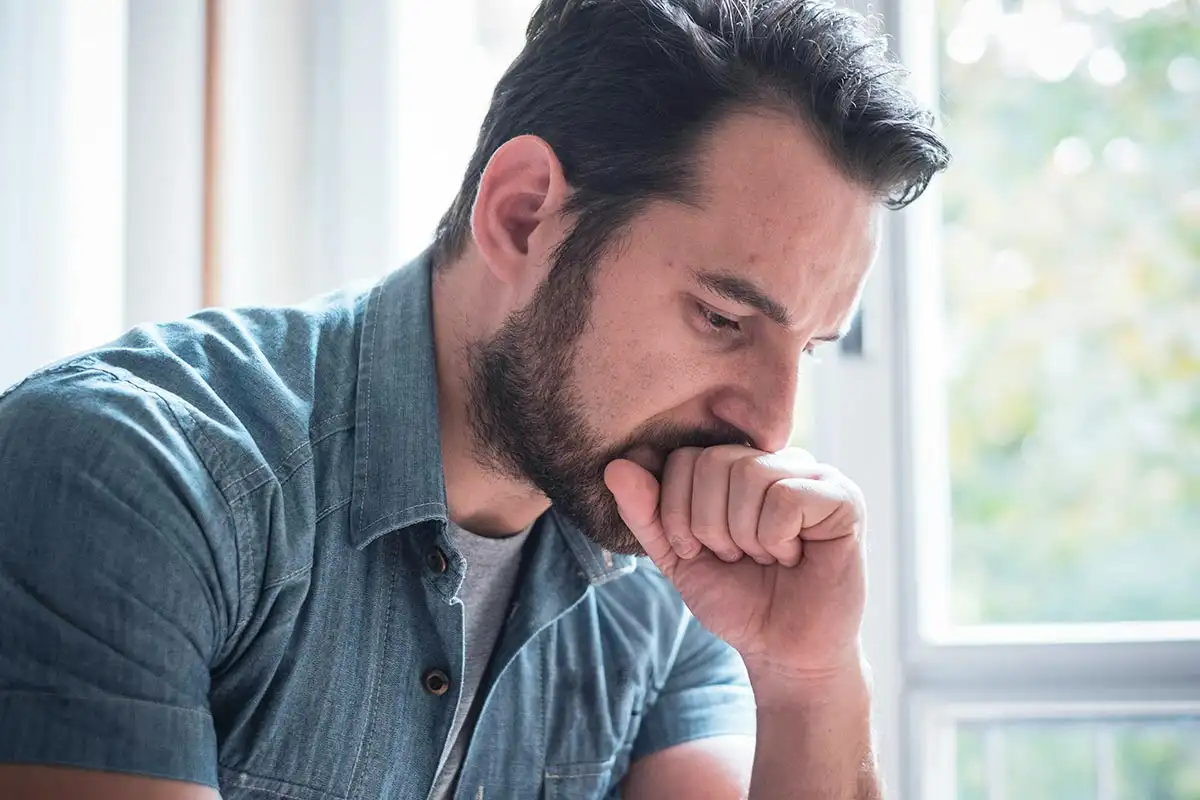
California Mental Health Parity: Ensuring Access to Virtual IOP
Medically Reviewed by:

Dr. Marco M. Zahedi
Medical Director, Compassion Recovery Center

Dr. Michael Majeski
Licensed Psychologist (LP), Compassion Recovery Center
Table of Contents
Understanding the Landscape: Mental Health Parity and Virtual Care in California
Living in California, you might hear about efforts to improve healthcare access, especially for mental health and substance use disorders. A crucial part of this is something called “mental health parity.” In simple terms, it means that insurance coverage for mental health and addiction treatment should be on par with coverage for physical health conditions. This is a game-changer, particularly when it comes to accessing flexible and effective care options like virtual Intensive Outpatient Programs (IOPs). For many individuals and families in Orange County and across the state, understanding these rights and options can be the first step toward healing.
Virtual IOPs have emerged as a vital resource, offering comprehensive treatment from the comfort and privacy of your own home. Imagine being able to attend therapy sessions, participate in group discussions, and receive support without the daily commute or the need to rearrange your entire life. This is the power of telehealth addiction treatment, and it’s making recovery more achievable for more people. At Compassion Recovery Center, we specialize in providing these Virtual IOP Program services, tailoring them to meet the unique needs of Californians seeking a path to sobriety and improved mental well-being. We believe that everyone deserves access to high-quality care, and our remote drug rehab services for Orange County and beyond are designed with this principle at heart. Whether you’re exploring treatment for the first time or seeking a more adaptable alternative to traditional rehab, we’re here to guide you. You can check insurance coverage with us to understand your benefits better.

Decoding California Mental Health Parity: What It Means for You
Mental health parity might sound like a complex legal term, but its core idea is straightforward and profoundly important: fairness in health insurance coverage. For too long, individuals needing mental health or substance use disorder treatment faced greater hurdles than those seeking care for physical ailments. This often meant higher costs, more restrictive limits on care, and fewer covered services. Parity laws are designed to dismantle these discriminatory practices, ensuring that your mind is treated with the same importance as your body by insurance providers.
The purpose of these laws, both at the federal level (like the Mental Health Parity and Addiction Equity Act – MHPAEA) and with specific California legislation, is to ensure that health plans offer benefits for mental health and substance use disorders (MH/SUD) that are no more restrictive than the benefits offered for medical and surgical care. This covers various aspects, including financial requirements (like co-pays and deductibles), treatment limitations (like the number of visits allowed), and criteria for determining what care is “medically necessary.” In essence, if your insurance plan covers unlimited doctor visits for diabetes management, it shouldn’t arbitrarily cap your therapy sessions for depression or anxiety.
California has been a leader in strengthening these protections. Key state laws, such as SB 855, have expanded on federal parity requirements, mandating coverage for all medically necessary treatment for mental health conditions and substance use disorders. This includes a broad spectrum of services, from initial assessments and Outpatient Detox to Intensive Outpatient Program (IOP) and even Partial Hospitalization Program (PHP) when deemed appropriate. The impact on insurance coverage is significant. It means that Californians should find it easier to get their insurance to cover the full range of care they need, including innovative and accessible options like virtual IOPs. While navigating insurance can still be challenging, these laws provide a strong foundation for patients to advocate for their right to treatment. If you’re unsure about your coverage for services like our “Virtual rehab California” programs, we encourage you to reach out today; our team can help you understand your benefits under these parity laws.
The Transformative Power of Virtual IOP in Mental Health Treatment
An Intensive Outpatient Program (IOP) offers a structured level of care for individuals struggling with substance use or mental health conditions who don’t require 24/7 residential supervision but need more support than standard weekly therapy. Typically, an IOP involves several hours of therapy and counseling per day, multiple days a week. This can include individual therapy, group sessions, psychoeducation, and skills-building workshops. The goal is to provide robust support while allowing individuals to maintain their daily responsibilities like work, school, or family care. It’s a crucial step for many, bridging the gap between inpatient care and less intensive outpatient services, or serving as a primary mode of treatment for those with a supportive home environment.
Now, imagine accessing this comprehensive level of care without leaving your home. That’s the essence of a “Virtual IOP.” The benefits for patients are numerous and compelling:
- Unmatched Accessibility: Geographic location is no longer a barrier. Whether you’re in a bustling part of Orange County or a more remote area of California, quality treatment is available with an internet connection. This is particularly beneficial for those with mobility issues or limited transportation.
- Enhanced Flexibility: Virtual programs often offer more flexible scheduling options, making it easier to balance treatment with work, academic commitments, or family duties. This adaptability can significantly reduce stress and make it more feasible to commit to recovery. Many find that “how virtual IOP fits into a busy schedule” is one of its most significant advantages.
- Comfort and Privacy: Receiving care in a familiar, private environment can reduce anxiety and stigma associated with seeking treatment. This comfort can foster greater openness and engagement in therapy.
- Real-World Application: Because you’re living at home, you can immediately apply the coping skills and strategies learned in therapy to real-life situations and challenges, strengthening your recovery in your everyday environment.
- Continuity of Care: For those stepping down from residential treatment or needing to start care quickly, virtual IOPs offer a seamless transition and immediate support.
- Family Involvement: Telehealth can make it easier to involve family members in therapy sessions or educational programs, which is often crucial for long-term recovery. Our “virtual couples counseling rehab” options, for example, allow partners to participate conveniently.
Virtual IOP programs directly align with the goals of mental health parity. Parity aims to make comprehensive mental health and substance abuse treatment as accessible as physical health treatment. By removing geographical, logistical, and some financial barriers (often virtual programs can be more cost-effective in the long run due to no travel or accommodation costs), virtual IOPs expand the reach of quality care. They ensure that a robust, “intensive” level of outpatient care isn’t just a theoretical option but a practical reality for more Californians. Compassion Recovery Center’s “Remote IOP” is designed to maximize these benefits, providing effective and compassionate Mental Health Treatment and addiction support. If this sounds like a fit for you or your loved one, start your free assessment with us to learn more.

Bridging the Gap: How Parity and Telehealth Ensure Access to Virtual IOP in California
Despite progress, many Californians still face significant challenges when trying to access mental health and substance abuse services. Common hurdles include a shortage of qualified providers, especially in rural areas or for specialized needs. Long wait times for appointments can be discouraging, particularly when someone is in crisis or has made the brave decision to seek help. The stigma surrounding mental health and addiction, though lessening, can still prevent individuals from reaching out. Furthermore, practical issues like transportation, childcare, and taking time off work can make attending traditional, in-person programs difficult, if not impossible, for many. The cost of treatment and the complexity of navigating insurance benefits also remain major barriers.
This is where “California Mental Health Parity” laws play a crucial role in facilitating access to innovative solutions like “Virtual IOP.” These laws essentially tell insurance companies that they must cover mental health and substance use disorder treatments, including intensive outpatient programs, at a level comparable to how they cover physical health treatments. When a virtual IOP is deemed medically necessary and provides a standard of care equivalent to its in-person counterpart, parity laws support its coverage. This means your insurance plan shouldn’t create unique or more burdensome hurdles for accessing virtual mental health care than it does for, say, virtual consultations with a cardiologist or a specialist for a physical condition.
Telehealth, as the delivery mechanism for “Virtual IOP” and other remote services, is a powerful engine for expanding access. It directly addresses many of the challenges mentioned earlier:
- Overcoming Geography: Telehealth brings specialists and programs to individuals regardless of their physical location. Someone in a remote part of California can access the same quality “Orange County IOP” experience as someone living next door to a clinic.
- Increasing Convenience: By eliminating travel time and offering flexible scheduling, telehealth makes it easier for busy professionals, parents, or those with mobility issues to consistently attend treatment.
- Reducing Stigma: Accessing care from the privacy of one’s home can make it less daunting for individuals who are hesitant to be seen entering a traditional treatment facility.
- Improving Timeliness of Care: Telehealth can often reduce wait times for initial assessments and program entry, allowing individuals to get help when they need it most.
At Compassion Recovery Center, we leverage the power of telehealth to provide effective “telehealth addiction treatment” across California. We understand the importance of timely, accessible care, and our virtual programs are designed to meet you where you are. By combining our expertise in remote treatment with the protections afforded by California’s mental health parity laws, we aim to make the path to recovery smoother and more attainable. If you’re facing challenges in accessing care, we encourage you to Contact Us to discuss how our virtual services might be the solution you need.
Compassion Recovery Center: Your Partner in Virtual Healing in California
At Compassion Recovery Center, we are dedicated to providing high-quality, accessible, and compassionate care through our specialized “Virtual IOP” and other telehealth services. We understand that the journey to recovery is unique for everyone, and our programs are designed to offer personalized support that fits into your life. We proudly offer “virtual rehab California” services, with a strong connection to the Orange County community, ensuring that expert help is just a click away.
Our comprehensive virtual services include:
- Remote Intensive Outpatient Program (Remote IOP): Our core offering, this program provides structured, intensive therapy several hours a day, multiple days a week, all delivered online. It includes individual counseling, group therapy, family sessions, and educational workshops, mirroring the effectiveness of traditional IOPs but with enhanced convenience and accessibility. This is ideal for those needing significant support for Drug Rehab Programs or Alcohol Rehab Programs while managing daily life.
- Online CBT Therapy: Cognitive Behavioral Therapy (CBT) is a cornerstone of effective addiction and mental health treatment. Our experienced therapists deliver “online CBT therapy” to help you identify and change negative thought patterns and behaviors, develop healthier coping mechanisms, and build resilience against relapse.
- MAT Treatment Online Support: Medication-Assisted Treatment (MAT) can be a vital component of recovery for opioid and alcohol use disorders. While we don’t prescribe directly through an initial online-only consultation for certain medications, we support clients undergoing MAT by coordinating with their prescribers, providing counseling that complements their medication regimen, and offering education and support for “MAT treatment online” pathways. This ensures an integrated approach to your recovery.
- Virtual Couples Counseling Rehab: Addiction and mental health struggles often impact relationships. Our “virtual couples counseling rehab” services provide a confidential and convenient space for couples to heal, improve communication, and build a supportive partnership conducive to long-term recovery.
- Dual Diagnosis Treatment: Many individuals struggle with co-occurring substance use and mental health conditions. Our team is experienced in Dual Diagnosis Treatment, addressing both issues simultaneously for a more holistic and effective recovery.
Choosing Compassion Recovery Center for your “remote drug rehab Orange County” needs or statewide virtual care offers several key benefits. We are specialists in telehealth, meaning our programs are not just adapted for online delivery but are built from the ground up to be effective in a virtual environment. Our clinicians are not only licensed and experienced but also skilled in creating engaging and supportive online therapeutic relationships. We pride ourselves on our empathetic, non-judgmental approach, fostering a safe space where you can feel understood and empowered. While specific success stories are kept confidential to protect privacy, the outcomes from virtual IOP programs like ours are consistently positive. Clients report high satisfaction rates due to the flexibility, accessibility, and the quality of care received. They often find it easier to stay engaged and complete their programs, leading to sustained recovery and improved quality of life. The ability to integrate learned skills into their home environment in real-time is a significant advantage frequently highlighted. To explore how our programs can support your journey, Admissions Information is readily available, or you can start by verifying your insurance with us.
Navigating Insurance for Your Virtual IOP: Making Parity Work for You
Understanding your insurance coverage is a critical step when seeking any form of healthcare, and this is especially true for mental health and substance use disorder treatment, including “Virtual IOP.” Thanks to “California Mental Health Parity” laws, the landscape is more favorable than ever, but it still requires some navigation. These laws mandate that insurance plans should not impose more restrictive conditions on mental health benefits than they do on medical or surgical benefits. This applies to annual and lifetime dollar limits, financial requirements like co-pays and deductibles, quantitative treatment limits (e.g., number of visits), and non-quantitative treatment limitations (NQTLs), such as pre-authorization requirements or medical necessity criteria.
Here are some practical tips for patients to help ensure their “Virtual IOP” or other “telehealth addiction treatment” services are covered:
- Directly Contact Your Insurance Provider: This is the most crucial first step. Call the member services number on your insurance card. Specifically ask about your benefits for “mental health services,” “substance abuse treatment,” “intensive outpatient programs,” and “telehealth services.” Inquire about any differences in coverage for virtual versus in-person care.
- Understand Your Plan Details: Know whether you have an HMO, PPO, EPO, etc., as this affects your network requirements. Ask about your deductible (how much you pay before insurance kicks in), co-payments (fixed amount per session), or co-insurance (percentage of the cost you pay).
- Verify In-Network vs. Out-of-Network: Ask if Compassion Recovery Center is an in-network provider for your plan. If we are out-of-network, ask about your out-of-network benefits, as many plans still offer some coverage.
- Inquire About Pre-authorization: Some insurance plans require pre-authorization (or prior approval) before they will cover IOP services. Ask if this is needed and what the process entails. Missing this step can lead to denied claims.
- Clarify “Medical Necessity”: Insurance companies cover services they deem “medically necessary.” Understand their criteria. Reputable treatment providers like Compassion Recovery Center conduct thorough assessments to determine medical necessity and can provide documentation to your insurer.
- Keep Detailed Records: Maintain records of all communications with your insurance company, including dates, times, names of representatives, and reference numbers for calls. Also, keep copies of all bills, Explanations of Benefits (EOBs), and any correspondence.
Navigating this process can feel overwhelming, especially when you’re already dealing with the stress of seeking treatment. That’s where Compassion Recovery Center steps in to help. We understand the intricacies of insurance and the importance of “California Mental Health Parity.” Our dedicated admissions team is here to assist you. We can help you Verify Insurance coverage, understand your benefits, and determine your potential out-of-pocket costs for our “Virtual rehab California” programs. We can also guide you through any pre-authorization processes and work with your insurance provider to ensure you receive the maximum coverage you’re entitled to. Our goal is to make accessing our “Orange County IOP” and other virtual services as smooth and stress-free as possible, so you can focus on what truly matters – your recovery. Don’t let insurance concerns be a barrier; get help now by reaching out to our knowledgeable team.
The Horizon of Healing: Future Trends in Virtual IOP and Mental Health Parity
The landscape of mental health and addiction treatment is continually evolving, with telehealth and “Virtual IOP” programs at the forefront of this transformation. The COVID-19 pandemic significantly accelerated the adoption and acceptance of virtual care, and many of these changes are here to stay, shaping a more accessible and patient-centered future. Several key trends are emerging in telehealth and virtual mental health services. We’re seeing increased sophistication in virtual platforms, offering more interactive and engaging therapeutic experiences. There’s a growing integration of digital tools, such as mental health apps, wearable technology for monitoring well-being, and secure patient portals that enhance communication and access to resources. Furthermore, there’s a move towards more specialized virtual programs, catering to specific populations or conditions, like “virtual couples counseling rehab” or programs focused on “dual diagnosis treatment.” The convenience and effectiveness of “online CBT therapy” and remote support for “MAT treatment online” pathways are also becoming more widely recognized and utilized.
In terms of legislation and policy, the momentum behind “California Mental Health Parity” is likely to continue. We may see efforts to further strengthen enforcement of existing parity laws, ensuring that insurance companies fully comply with their obligations. There could be ongoing discussions and policy adjustments to permanently codify the expanded telehealth flexibilities that were introduced during the public health emergency, ensuring continued broad access to virtual care. California has often been a pioneer in healthcare reform, and we might anticipate new state-level initiatives aimed at improving mental healthcare access, quality, and integration with physical healthcare. Advocacy groups and policymakers are increasingly focused on addressing provider shortages, particularly in underserved areas, and telehealth is a key strategy in these discussions.
The evolving role of “Virtual IOP” in comprehensive mental health care is significant. It’s no longer viewed as just a temporary or niche alternative but as an integral and permanent fixture in the continuum of care. Virtual IOPs are increasingly recognized for their ability to:
- Improve Early Intervention: By making treatment more accessible, virtual programs can help individuals get support sooner, potentially preventing conditions from worsening.
- Enhance Long-Term Recovery: The flexibility of virtual care makes it easier for individuals to stay engaged in treatment for longer periods or to access step-down support and aftercare services, which are crucial for sustained recovery.
- Integrate with In-Person Services: Hybrid models, combining virtual and in-person components, may become more common, offering the best of both worlds.
- Reach Underserved Populations: Virtual care continues to be a lifeline for those in rural communities, individuals with disabilities, or those facing other barriers to accessing traditional services.
Compassion Recovery Center is committed to staying at the cutting edge of these developments, continually refining our “Remote IOP” and other “telehealth addiction treatment” offerings to provide the most effective, evidence-based, and compassionate care possible. We see a future where technology and dedicated care combine to break down even more barriers, making recovery a tangible reality for everyone in California who needs it. If you’re looking for forward-thinking “virtual rehab California” options, particularly focused on areas like Orange County, we encourage you to start your free assessment and explore how our innovative programs can support your journey to well-being.
Embracing Hope and Healing: Your Path Forward with Virtual Care
Throughout this discussion, we’ve explored the vital importance of “California Mental Health Parity” and the transformative potential of “Virtual IOP” programs. Parity laws are fundamental in ensuring that mental health and substance use disorders receive the same level of insurance coverage and attention as physical health conditions. This legal framework opens doors, making it more feasible for individuals and families to access the care they deserve. When combined with the innovation of telehealth, especially through comprehensive services like virtual intensive outpatient programs, the path to recovery becomes significantly more accessible, flexible, and tailored to modern life.
Virtual IOPs, such as those offered by Compassion Recovery Center, bring evidence-based treatment directly to you, in the comfort and privacy of your home. Whether you’re in Orange County seeking a “Remote IOP” or anywhere else in California needing “telehealth addiction treatment,” these programs eliminate many traditional barriers like travel, scheduling conflicts, and stigma. The ability to engage in “online CBT therapy,” receive support for “MAT treatment online” pathways, or participate in “virtual couples counseling rehab” empowers you to take control of your healing journey without upending your daily life. This approach is not just convenient; it’s effective, fostering real-world coping skills and lasting change.
If you or a loved one is struggling with substance abuse or a mental health condition, please know that you are not alone and help is available. The first step, often the hardest, is reaching out. At Compassion Recovery Center, we are here to listen without judgment, provide information, and guide you toward the support that’s right for you. Our team is experienced in navigating insurance, including helping you check insurance coverage to understand your benefits under California’s parity laws. We encourage you to take advantage of the resources available. Explore your treatment options, learn more about our specialized Virtual IOP Program, and discover how our compassionate approach to “virtual rehab California” can make a difference. Your well-being is our priority. We invite you to contact us for a confidential assessment or start your free assessment online today. It’s time to embrace hope and begin your journey toward a healthier, more fulfilling life. Let Compassion Recovery Center be your partner in healing.
What are the six categories of Mental Health Parity?
What is the parity law in California for mental health?
What is Proposition 63 in California mental health?
What is SB 326 California mental health?
How to market a rehab center?
What is telehealth addiction treatment?
Is rehab a HIPAA?
What is the most common therapy for substance abuse?
Struggling to balance life while needing support? Get expert virtual care and start your recovery journey, anytime, anywhere.
We’re learning more each day.
Researchers and doctors are making exciting progress in understanding mental health and addiction—bringing hope to millions.
Your genes don’t define you.
Genetics can play a part, but they don’t decide your future. Mental health is shaped by many factors, and healing is always possible.
There's no one-size-fits-all.
The right treatment often includes a mix of therapy, medication, and compassionate care—tailored just for you.


















